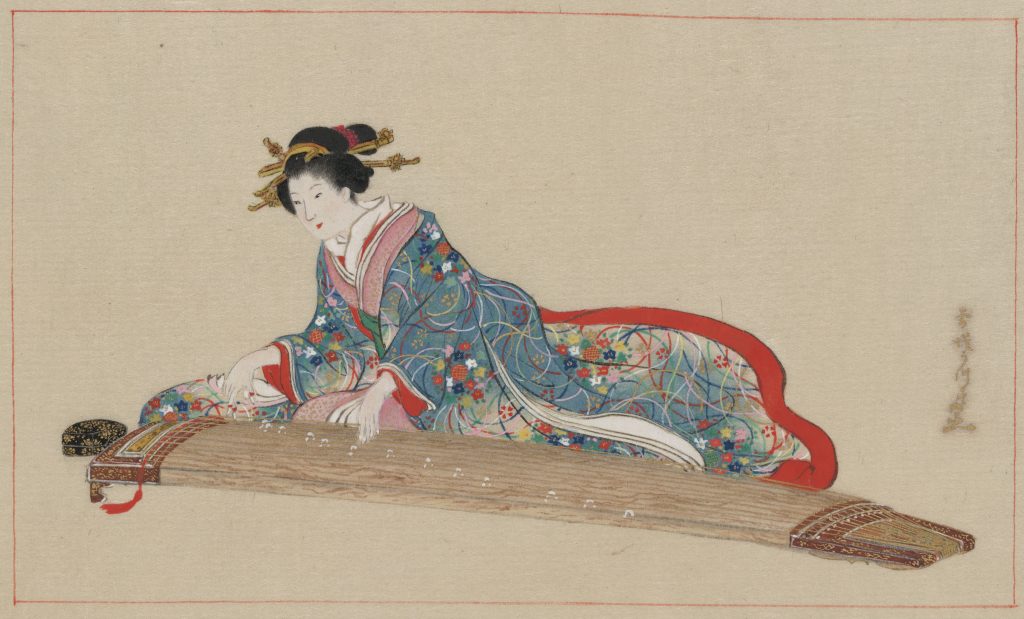
Since the opening of Japan to the West in 1868, the residents of that island nation arguably have sought more often to achieve excellence in Western styles of music instead of their own indigenous sonic heritage.
But native Japanese music remains an important part of the culture, and this month, the Morikami Museum and Japanese Gardens in western Delray Beach will bring it home by inaugurating an education program in traditional Japanese music. The museum, which turns 40 on June 25, will begin by offering a one-week summer camp for children and similar adult courses in which participants can learn to play two of the country’s traditional instruments, the koto and the shakuhachi.
In addition to learning how to play the instruments, campers will learn about other elements of Japanese culture such as the language, musical notation and the proper way to wear a kimono.
“It’s not just learning about the instruments; it’s learning about the culture,” said Wendy Lo, the Morikami’s curator of education. A Chinese-American from Miami who holds degrees from Florida International University, Lo also studied and taught in Japan, where she learned to play the koto.
The koto is a 6-foot long, 13-string instrument similar to a zither which is played with finger picks while seated, and the shakuhachi is a wind instrument akin to the recorder, but better understood as an end-blown flute. The one-week summer camp will run from June 19-24, culminating in a free concert at 3 p.m. June 25, the 40th anniversary date.
“We’re going to have a recital with all the students, and for family and friends to come,” she said, and performers will be given the summer kimonos known as yukata to wear for the concert. “They get to perform in Japanese attire and get the whole immersive experience.”
The courses will be taught by three instructors: Joseph Gashō Amato for the koto, Christopher Yohmei Blasdel for the shakuhachi, and Minako Waseda, who teaches music at several Japanese universities and who will teach the cultural part of the program, including a Saturday lecture on Japanese music in the United States.
It was Amato, a New Yorker who has been living in Japan for decades, who reached out to the Morikami to find out whether the museum would be interested in a collaboration, Lo said. It took more than a year of planning, grant writing and fundraising to put the program together.
The Morikami has long had demonstrations of Japanese cultural activities such as the tea ceremony and taiko drumming, and every spring it hosts the Hatsume Fair, where participants can see martial arts performances and wear costumes. The museum also does koto and kimono demonstrations.
“But the demonstrations are just people observing, and you’re just talking about it. It’s not hands-on,” Lo said. “The limitation of having a hands-on demonstration is purchasing the instruments.”
Thanks to successful fundraising, the Morikami has secured 10 kotos and 10 shakuhachi for the program, so that participants do not have to buy them. The program will continue during the year with koto classes taught by a Lake Worth resident, Yoshiko Carlton, one of the founders of the taiko drumming ensemble called Fushu Daiko, as well as a performing ensemble called Friends of Koto.
Playing either instrument is not as straightforward as just sitting down and having at the instruments to see what comes out. For the koto, there are different styles of sitting at the instrument, and players must follow them in order to get the proper sound and cultural habituation. The 13 strings are tuned to different notes depending on the music to be played; the ancient Japanese folksong “Sakura (Cherry Blossoms),” for instance, will be taught in hira joshi tuning.
But that doesn’t mean learning the basics of the koto are hard to grasp. Notation is more a matter of playing numbered strings in the correct order. “As long as you can count to 13, you’re golden,” Lo said.
The summer camp will be taught in three groups to children in grades 3 to 5, 6 to 8 and 9 to 12. The camp runs from 9 a.m. to 12:30 p.m. each day at the museum from June 19-23. The cost for the program is $275, and advance registration is required.
Adults can choose which of the two instruments they want to play, and workshops are available as three weekdays (June 19, 21 and 23) from 1 to 3 p.m., or on the weekend of the 24th and 25th, with classes from 9 a.m. to 12:30 p.m. on Saturday and Sunday. The weekday course costs $150, and the weekend course $200.
The workshops are geared to beginners, but intermediate and advanced players can call the Morikami at 233-1328 for information about special workshops for them.
For more information, call 495-0233 or visit morikami.org.